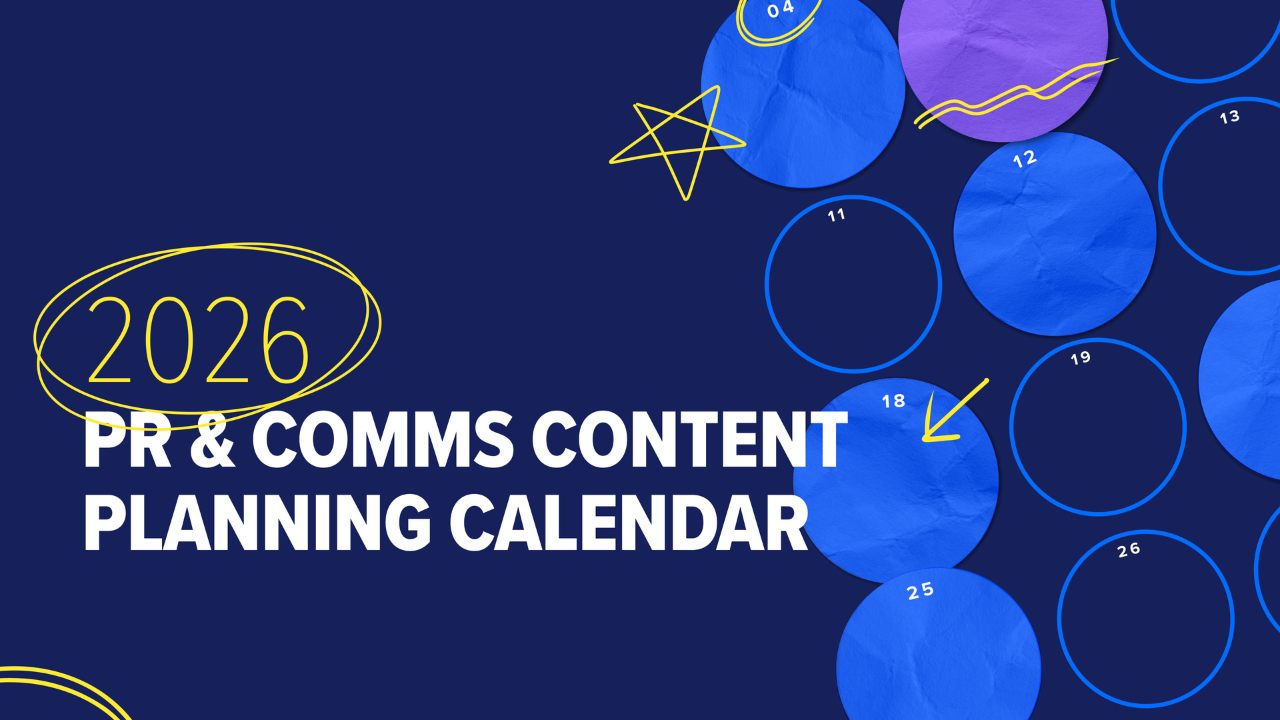When recognising World Press Freedom Day each year, we’re reminded of the crucial role journalists play across the globe - giving voice to the voiceless, holding the powerful accountable, and ensuring all sides of a story are heard.
For PR teams who rely so heavily on media relationships, it’s a reminder of how much we rely on journalists to amplify our stories, and just how important those media relationships are.
But let’s be honest – the challenges they face and the hard work they put in to keep us informed deserves year-round recognition and support.
How Individuals Can Show Their Support for Journalists and the Free Press
Here are just some of the ways the public can show their support:
- Share: If you come across a well-reported article, share it on social media, email it to friends and family, or message a link to your coworkers to give recognition to the journalist.
- Subscribe: With news outlets increasingly focused on driving revenue to stay afloat, signing up for paid newsletters and digital subscriptions is a strong signal of support (don’t forget your local media outlets).
- Donate: If you’d prefer to skip the subscription, consider donating to an organisation that’s dedicated to supporting a free press.
- Participate: Attend or organise panel discussions, webinars, or community events that highlight the challenges journalists face and explore ways to safeguard their rights.
- Advocate: Use your platform, whether a personal social media account or your organisation’s website, to raise awareness about threats to press freedom or amplify the voices of organisations dedicated to protecting journalists.
How PR Teams Can Support Journalists Year-Round
PR and communications professionals are uniquely positioned to support journalists in more direct and practical ways every single day. Our annual State of the Media Report surveys members of the media from all corners of the world to understand precisely what they need from PR teams.
While their asks of PR pros may not have a huge impact on press freedom itself, they go a long way in helping journalists overcome many of the day-to-day obstacles (and frustrations) of their jobs.
Consider their audiences first. The majority of journalists say that sending them pitches that are relevant to their audience is the number one way PR pros can make their job easier. Unfortunately, journalists tell us that most pitches miss the mark most of the time. Before reaching out, do your background research to make sure the journalists on your contact list are right for the story you’re pitching. Otherwise, you’re just wasting their time and your energy.
Be available and responsive. Sixty percent of journalists named media downsizing and reduced resources as their biggest challenge last year. Most are working multiple beats and trying to file multiple stories per week amid tight deadlines. They don’t have time to chase you for additional details, so always include contact information when sending out a pitch or a press release, and be ready and available to answer any follow-up questions the reporter may have.
Give them sufficient lead time. Journalists have to move at a rapid pace, so whenever possible, they like to plan their stories in advance. The more time you can give them to cover your story, the more likely they are to fit it into their editorial calendar. Consider giving them a calendar of upcoming stories you plan to pitch, so they can know what’s coming.
Curate the content they want and need. Journalists are under immense pressure to drive readership/viewership numbers and audience engagement, even amid industry downsizing and reduced resources. Keep this in mind when considering what stories to pitch. Serving up unique story angles, supplemented by unique research, is among one of the best ways to prove yourself as a valuable PR partner. Offering exclusives or access to industry experts – along with compelling multimedia elements that give their stories added dimension – show you’re thinking of ways to help them draw audiences in with new, unique, and valuable information.
Deliver on your promises. This should go without saying, but don’t ever make promises you can’t keep. For example, if you offer an exclusive, be sure to stick to your end of the agreement. Or if you propose an interview with a subject matter expert, make sure that person is available and up for the task. (Pro tip: Including a compelling quote from a subject matter expert in your pitch or press releases can be a time saver for both parties, as the journalist can simply grab it for their story.)
Exercise patience. Reporters barely have time to read every pitch they receive, let alone respond to every single one. If you’ve followed up with them once and still haven’t heard back, chances are they either didn’t find the pitch relevant or are too busy to get back to you. Either way, it’s probably time to move on, free up that reporter’s inbox, and move to the next journalist who may be more responsive.
Relinquish control. Unless they’ve reported something inaccurate or untruthful, how a journalist chooses to report a story you’ve pitched is not the PR person’s call to make. (Journalists already have editors for that.) Resist the urge to micro-manage or tell them how to report their story. A good media relationship is built on trust, so trust them to do their jobs.
At the end of the day, PR pros and journalists rely on each other to fulfill their respective missions. By making journalists’ jobs easier and treating them with professional courtesy, you set the foundation for strong, long-lasting, and mutually beneficial working relationships.
So take some time this World Press Freedom Day to show your appreciation for the vital work journalists do. But don't stop there – make supporting their efforts a year-round practice.
For additional insight on building effective relationships with journalists, check out these resources:
Most Recent Posts
Cision Resources
-
E-books and Guides
Comprehensive how-to guides on strategy and tactics
-
Case Studies
What are other brands doing – and how can we learn from them?
About Amy O'Connell
Amy O'Connell is the Global Content and Experience Producer at Cision. She is a skilled marketing and communications professional with over 15 years of experience across various industries.
Learn More. Do More. demo new
PR Tips, Case Studies, and Product Updates

[On-Demand Webinar] The Next Generation of Media Intelligence: From Gorkana to CisionOne
Explore CisionOne, a revolutionary media intelligence platform, and the evolution of Gorkana. Learn key features and strategies from Luke Williams, CisionOne Product Marketing Manager. Elevate your media outreach to new heights!


